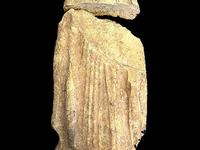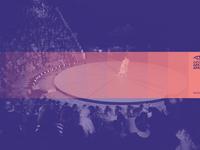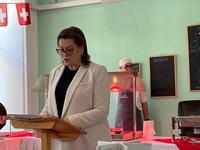Press Releases
.jpg)
07-12-2022 13:13
Address by the Deputy Minister of Culture, Mr Yiannis Toumazis, at the opening of the exhibition “CHRISTOFOROS SAVVA: UNBOUND”
6 December 2022, The Hellenic Centre, London
It is with great pleasure that I welcome you to this evening, to celebrate together Christoforos Savva’s symbolic return to London, more than 70 years after he joined the vibrant post-war metropolis and its pulsating art world.
Savva moved to London in 1946, having served in the Cypriot Regiment of the British Army during World War II, to begin his studies at Saint Martin’s School of Art and the Central School of Art, and consequently at the Heatherley School of Art, where he studied until 1953. During a short break in Cyprus, where he joined a budding local art scene, presented his first solo shows and co-founded the Pancyprian Union of Art Votaries, he returned to London in 1956, later moving to Paris to continue his studies at the Académie Montparnasse. Savva’s time in London coincided with a decade which produced numerous seminal artists and historical movements, and was thus marked by creative inspiration and collective action - especially though the work of the ‘Pimlico Group’, a collective he founded with fellow artists from the Heatherley School - and the formation of lifelong friendships such as the one with his fellow artist Roddy Maude-Roxby.
Savva settled in Nicosia in 1960 and in a short period of time managed to create an extremely rich and strikingly diverse body of work, including abstract painting, sculptures, performance art, through to furniture and architectural interventions, but also his more experimental works with wire, textiles, nails and cement. In 1960, together with Welsh fellow artist Glyn Hughes, he founded the “Apophasis” [Decision] Gallery, considered to be the first independent cultural center of the newly established Republic of Cyprus. Apophasis, a place of collaboration and exchange, hosted a number of diverse activities like exhibitions, lectures, plays, art performances and film screenings, which, as a whole, had a huge impact on the developing Cypriot art scene, during one of the most fragile socio-political periods on the island. In 1968, Savva, together with five other artists, represented Cyprus in its inaugural Pavilion at the Venice Biennale. As we all know, a few weeks later, he suddenly passed away in Sheffield.
This exhibition revisits Savva’s time in London, and the carefully selected works on show reverberate the huge impact the city has had on the artist, and the ways in which he continued to approach his singular practice while influencing generations of Cypriot artists to this day. Being widely acknowledged as one of the leading figures of Cypriot art, Savva is credited with contributing to the shaping of the modern cultural face of the island, still provoking, though his remarkable legacy, new questions about his work and his historical time, as well as the complexities of Cypriot modernity. In this sense, Savva’s activity and work still seems astonishingly current.
Christoforos Savva: Unbound, curated by Marina Christodoulidou, constitutes the last part of an exhibition trilogy, beginning in 2019 with a large-scale survey show of Christoforos Savva at the new State Gallery of Contemporary Art – SPEL in Nicosia, and continuing with his posthumous exhibition in the Cyprus Pavilion at the 58th Venice Biennale. This third exhibition in London keeps ‘unbounding’ the manifold research carried out to date around Savva, unravelling Cypriot modernism in art as a distinct chapter in world art history of the 20th century.
I would like to thank the Hellenic Centre in London, being our co-organisers in this important venture, and especially its President, Mr Costas Kleanthous, the members of the Board, and Dr Nayia Yiakoumaki, with whom we have had the pleasure to collaborate upon her assignment as the Hellenic Centre’s new Director.
I would also like to thank his Excellency the High Commissioner of the Republic of Cyprus in the UK, for all the support and for placing the exhibition under its auspices.
I also congratulate the curator, Marina Christodoulidou, for continuing the ongoing research on Savva and helping to bring this London show to fruition, together with a dedicated exhibition team.
Finally, I would like to express my sincere gratitude to the Savva family who are here with us today, the collectors who have generously offered their works for the show, and all of you from the Cypriot/Hellenic London community and beyond, who have joined us tonight on this unique and moving tribute to Christoforos Savva.
(EL)
Relevant Press Releases

22-11-2024 11:25
The “Royal Chapel” of Agia Aikaterini at Pyrga closed for the public



04-11-2024 13:18
Announcement by the Cyprus Academy of Sciences, Letters, and Arts



